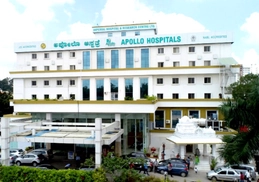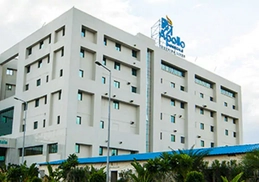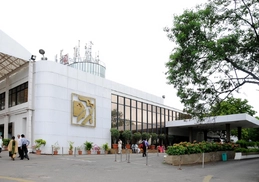
+91 8095511877

+91 8095511877
Kidney transplant surgery is a surgery to transplant a healthy kidney from a donor to a person having severe kidney disease. Kidneys are vital organs that help to remove waste products from the blood. It also performs many other functions to keep you healthy.
If your kidney does not work properly, you will have a lot of problems. Some of these can also put you in danger. Dialysis to remove the waste products from the blood with the help of a machine is the most common treatment. But after some time you will need to have it very often.
In such situations, a kidney transplant is the best option. You will get the kidney from a healthy living donor or deceased or a brain-dead person. The person donating the kidney is called a donor, and you will be the recipient.
The blood groups of the donor and recipient must be compatible. To get a kidney from a deceased donor, you will have to enroll in a registry and wait for your turn.
In a living donor transplant, you get the kidney from a healthy person willing to donate one of his kidneys. The person will be someone you know well or an acquaintance. It is essential to ensure that the donor is not doing it for any gains.
During the transplant, the doctor will place the new kidney in your abdominal cavity above your diseased kidneys. It is not necessary to remove the diseased kidney from your body. After placing the kidney, the doctor will connect the renal blood vessels to it. The new kidney will then start filtering waste from your blood and help you have a healthy life.
The donor will not have any problems with his health by donating a kidney. Your body will be able to function with a single kidney.
You will need a kidney transplant when both your kidneys fail. In acute kidney failure, the kidneys may start to function after treating the cause. Chronic kidney failure happens over a long time. In such cases, the chances of kidney function getting better are very less. In such a case, you will need a kidney transplant.
Some of the diseases that may cause kidney failure are
A few things can prevent one from having a kidney transplant. These include
The main requirements for a donor are he or she should
One of the other vital requirements is that they should not be doing it for any financial or material gains. Ideally, the donor should be someone whom you know well. A close family member or a friend will be an ideal donor.
The donor will have a complete body check-up to ensure that he or she is in perfect health.
It is also essential to get the consent of a close family member of the donor before the transplant. The doctors will also make sure that the donor is in good mental and emotional health. The donor should have a thorough understanding of the procedure of transplant.
The first step is to get a donor willing to donate.
You and the donor will have some tests to ensure that you both are fit enough to have the surgery.
The doctors will then do some matching tests. These include
After completing these tests, the doctors will send you both for a counseling session. During this, the doctors will explain the procedure, its risk, complications, etc.
There are many steps for a kidney transplant. The doctors will first remove the kidney from the donor. The next step is to transplant it to the body.
During surgery, both of you will have general anesthesia. It means you will both sleep through the procedure. The duration of the surgery will be around 3 to 4 hours.
The doctors will start the surgery by operating on the donor. They will remove one of the donor's kidneys along with the ureters. For this, the doctors will make a cut in the side of the abdomen.
The doctors will then start the operation on you by making a cut in the skin on the side of the abdomen. The next step is to place the donor kidney in the abdomen. Your diseased kidney will be left in place unless there is an infection or other problems with it.
In the next step, the doctors will attach the blood vessels to the new kidney. The blood will then start flowing into it and make it work.
The surgeons will then attach the ureters to the urinary bladder. The urine will then start slowly trickling into the bladder. There will be a stent in the ureters to keep it open. The doctors will remove this stent at a later time.
Once everything is fine, the doctors will close the incision in the abdomen using sutures or staples.
The doctors will then move you to the observation room.
You will have to make some changes in your life after a kidney transplant. These will help your new kidney to function better and prevent any complications. Some of these are
All these are small adjustments in life, but the benefit is a healthy kidney and a healthy life.
Some of the most common symptoms of kidney transplant rejection are:
If you have any of these signs, you need to go to the doctor very fast.
Some of the common risks of kidney transplant are
Apart from these, there can be some complications as well.


This article has been reviewed for medical correctness and relevance by
Dr Deepak Bolbandi
Dr.Deepak Bolbandi is a Senior Consultant Urologist and Transplant Surgeon working with Apollo Hospitals Group. He is rated among the best in the country. He is the First Urologist to Enter Guinness Book of World Records when he removed maximum number of stones from a Single Kidney. Dr. Bolbandi has performed more than 5000 kidney stone surgeries and more than 2000 prostrate surgeries. He is an expert at Laparoscopic Nephrectomy, Laparoscopic Pyeloplasty, and Surgery for Retrocaval Ureter. He also does Laparoscopic procedures for stone Disease and complex Adrenal surgeries.

Apollo Bangalore

Apollo Chennai

Apollo Health City

Apollo Indraprastha

Aster CMI

BLK Hospital
Frequently Asked Questions
Who can be a kidney donor?
How long can a person live with a kidney transplant?
Will I have a normal life after a kidney transplant?
What are the early signs of a kidney transplant rejection?
What is the cost of kidney transplant in India